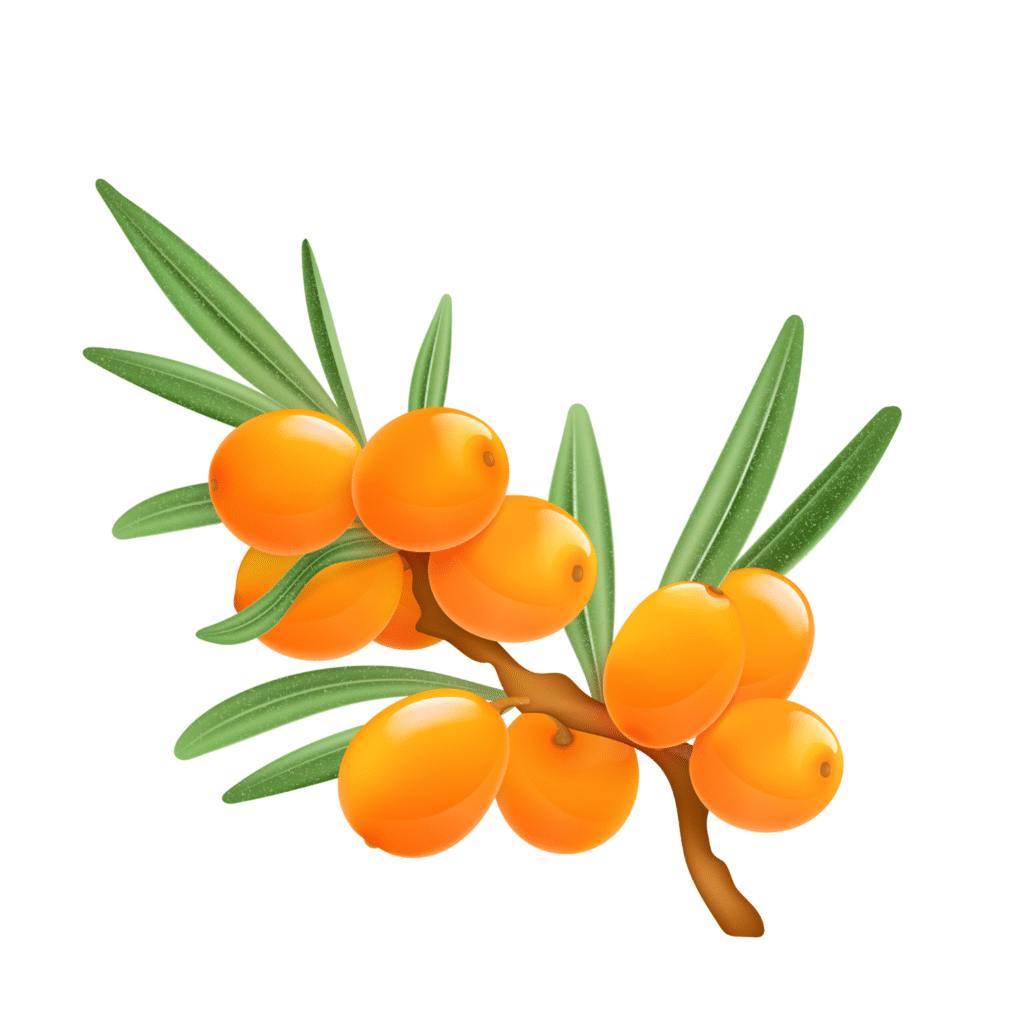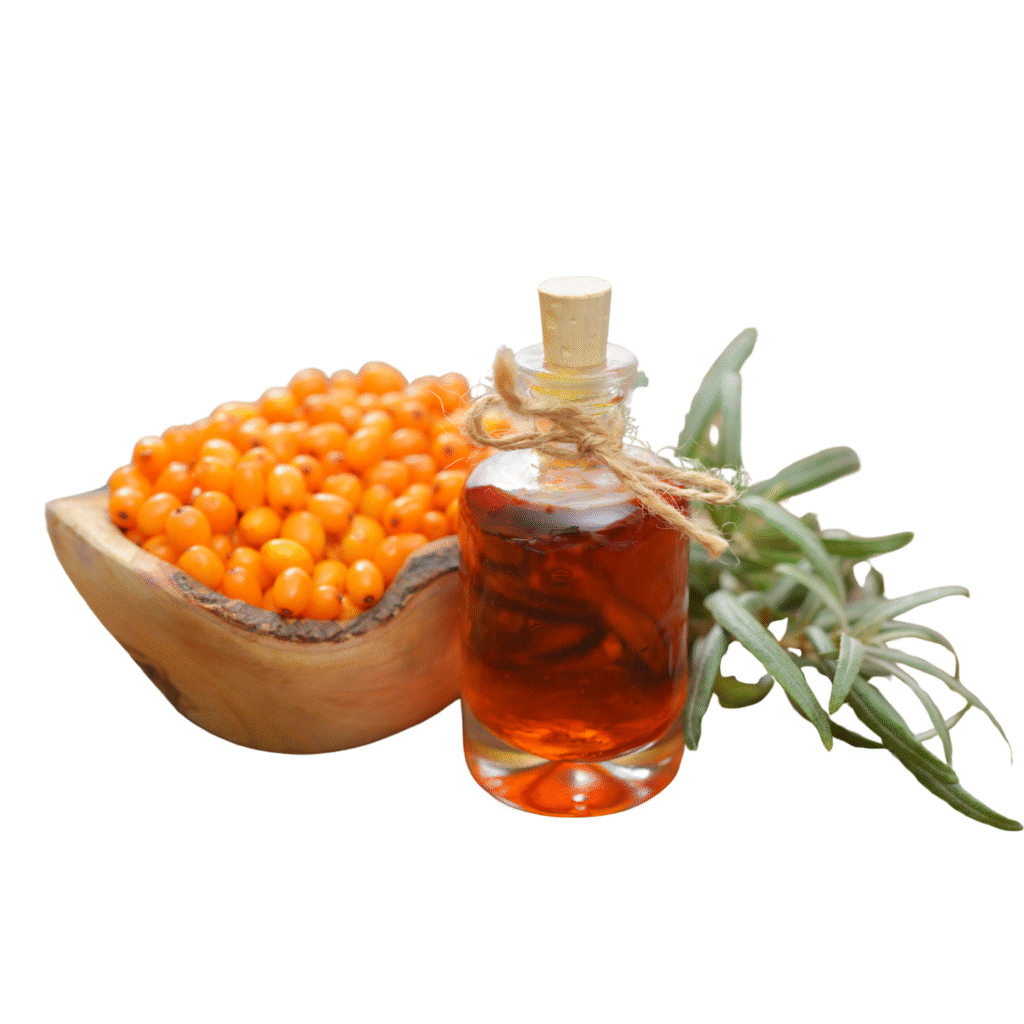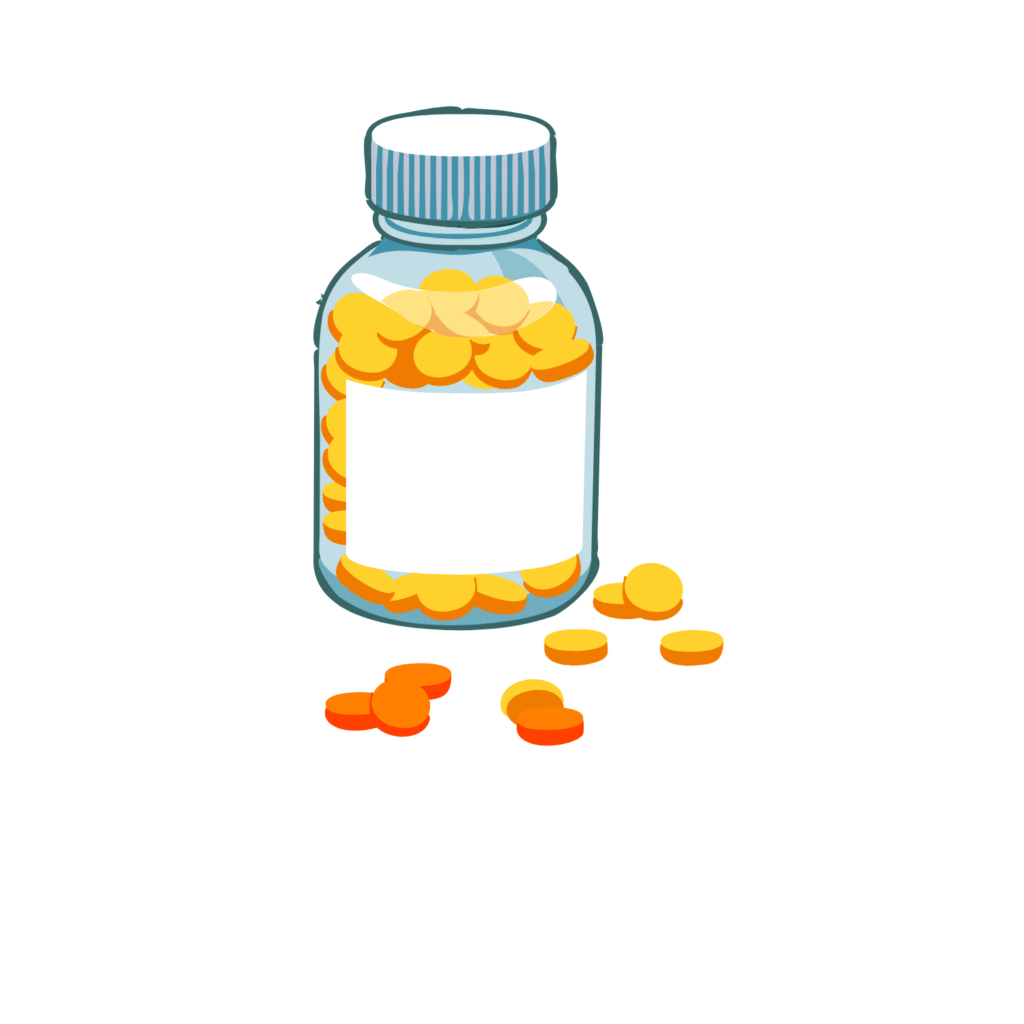Sea Buckthorn and Its Medicinal Uses: Nature’s Healing Powerhouse
Sea buckthorn (Hippophae rhamnoides) is a hardy shrub native to Europe and Asia, especially the mountainous and coastal regions. For centuries, it has been revered in traditional medicine systems such as Ayurveda, Tibetan, and Chinese medicine for its wide array of health benefits. Today, modern science is catching up, with studies validating many of the plant’s medicinal properties.
What is Sea Buckthorn?
Sea buckthorn is a deciduous shrub that produces bright orange berries rich in nutrients. The plant’s leaves, berries, and seeds are all used for medicinal purposes. The oil extracted from the fruit and seeds is especially prized for its healing abilities.
Nutritional Profile
Sea buckthorn is incredibly nutrient-dense. Its berries contain:
- Vitamins: C, A, E, K, and several B vitamins
- Minerals: Potassium, calcium, magnesium, iron
- Essential fatty acids: Omega-3, 6, 7, and 9
- Antioxidants: Flavonoids, carotenoids, and polyphenols
This unique combination makes it a valuable supplement for boosting health naturally.

Medicinal Uses of Sea Buckthorn
1. Skin Health
Sea buckthorn oil is renowned for its ability to nourish the skin. It promotes wound healing, reduces inflammation, and is often used in:
- Eczema and psoriasis treatments
- Anti-aging skin care
- Burn and wound healing creams
Its omega-7 content helps regenerate skin tissue and improve elasticity.
2. Immune System Support
High vitamin C and antioxidant levels help strengthen the immune system. Sea buckthorn stimulates white blood cell activity and may help the body resist infections.
3. Cardiovascular Health
Research shows that sea buckthorn can lower bad cholesterol (LDL) and raise good cholesterol (HDL), improving overall heart health. Its anti-inflammatory and antioxidant effects also reduce the risk of atherosclerosis (hardening of the arteries).
4. Digestive Aid
Sea buckthorn has traditionally been used to treat ulcers, acid reflux, and inflammation in the digestive tract. It helps protect the stomach lining and supports the regeneration of damaged tissues.
5. Liver Protection
Studies have shown that sea buckthorn can help reduce liver enzyme levels and protect liver cells from toxins. This makes it a valuable supplement for those with liver conditions or those undergoing treatments like chemotherapy.
6. Anti-Cancer Potential
While more human research is needed, lab studies suggest that the antioxidants in sea buckthorn may help prevent the growth of cancer cells and support the body during cancer treatments by boosting immunity and reducing oxidative stress.
7. Women’s Health
Sea buckthorn oil is often used to relieve vaginal dryness, particularly in postmenopausal women. It can also help balance hormones and support reproductive health due to its rich fatty acid profile.

Forms and Dosage
Sea buckthorn is available in various forms:
- Oil (for topical or oral use)
- Capsules
- Juice
- Powder
- Creams and ointments
Dosage varies depending on the form and intended use. It’s important to follow manufacturer instructions or consult with a healthcare provider.

Precautions and Side Effects
Sea buckthorn is generally considered safe, but some people may experience:
- Mild digestive upset
- Allergic reactions (rare)
- Blood-thinning effects (caution advised for those on anticoagulant medications)
Pregnant or breastfeeding women should consult a doctor before using sea buckthorn products.

Conclusion
Sea buckthorn is a powerful natural remedy with an impressive list of health benefits. From skin repair to heart health, its medicinal uses are both ancient and scientifically supported. As with any supplement, it’s best to use sea buckthorn under the guidance of a healthcare provider, especially when addressing specific health conditions.
As natural medicine continues to gain ground, sea buckthorn stands out as a golden-orange symbol of nature’s healing potential.
